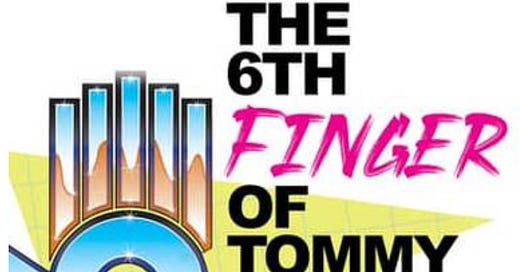Missing the Hand That Hits You
Acquired tastes come at a cost. There's a common reason for feeling tardy. The present is the only minefield.
There's a difference between resigning yourself to something and loving it. But the difference gets lost. It did for me.
Feeling tardy
“I don’t feel tardy,” is quip from Van Halen’s Hot for Teacher. A little joke, a little throwaway.
But it’s also true. No kid feels like they showed up late, not even in America in the twentieth century, which was drunk on its own history. The bender was so bad that at some point in the ‘90s, they tried to declare an end to history. That worked out about as well as when they outlawed beer.
As a kid in the ‘80s, grownups wanted to make sure you knew you were tardy. You missed the party. You missed the lesson, and now they had to go back and explain it all over again, either at the Boston Tea Party or the end of World War Two or at least the oil crisis.
Color schemes
When I was young, I got to watch the world change colors, or at least color schemes. In the early eighties, it’s a lot of hay-and-clay earth tones and a preference for rounded angles. I’m four. All I know is that I’m joining a conversation in the middle.
And I like the earth tones, because I’m four and I like everything, give or take. They’re just how everything looks. Only later does the palette click as a generational self-soothing mechanism for boomers on a comedown from mind-expanding drugs and high ideals.
When I hit seven or eight, the mood shifted. There was a lot of money and exercise and second wives among the people who decided what things looked like. A lot of fluorescent colors, leather jackets and screaming guitars. I’m seven or eight, and I at least want to like everything.
Now I’m older, and I’ve given up on wanting to like everything. Something’s been lost. But I’m not even sure I like much of what was going on forty years ago, aside from wood paneling and the original Van Halen.
Packing for an epiphany
It’d be nice if there was a logic to history, something like: People react to pain and pursue pleasure, en masse.
Pleasure is a relief from pain. But sometimes it’s a relief from a pain you didn’t know you had - this can be the most incredible pleasure.
One description of an epiphany is the discovery of a deep, lasting pain at the very moment it evaporates. This is different from eating a sandwich when you’re hungry. But we can count on the pains of hunger, and we make sure to have sandwiches ready.
The thing that makes each year different from the last is the pains we don’t even know we have. The future may be the answer to the present. But it’s not the answer to the present as we understand it.
A kink
Hot for Teacher the song is about that twist that makes desire hold. In the song, at first, Dave’s a kid in school, cracking wise. He’s a born smartass. And I’d guess he caught some flak from teachers in his day. At the very least, they told him he was tardy. And Dave thought otherwise.
Keep reading with a 7-day free trial
Subscribe to No Homework to keep reading this post and get 7 days of free access to the full post archives.



